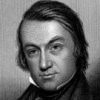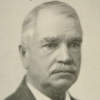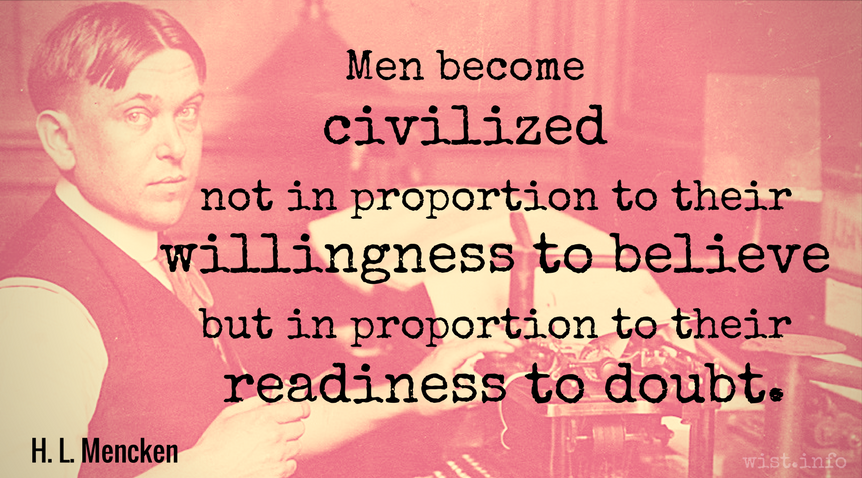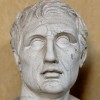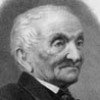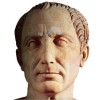A man my age is willing to accept almost anything. After the initial shock of astonishment that comes each morning when I wake up and discover that I’m still alive, I can face the day with an open mind.
Quotations about:
credulity
Note not all quotations have been tagged, so Search may find additional quotes on this topic.
During seasons of great pestilence, men have often believed the prophecies of crazed fanatics, that the end of the world was come. Credulity is always greatest in times of calamity.
Charles Mackay (1814-1889) Scottish poet, journalist, song writer
Memoirs of Extraordinary Popular Delusions and the Madness of Crowds, “Modern Prophecies” (1841)
(Source)
Undying hope is co-ruler of the human bosom with infallible credulity. A man finds he has been wrong at every preceding stage of his career, only to deduce the astonishing conclusion that he is at last entirely right.
If thou trustest every one, thou wilt be known to be a Fool; if thou trustest none, thou wilt be suspected to be a Knave.
Thomas Fuller (1654-1734) English physician, preacher, aphorist, writer
Introductio ad Prudentiam, Vol. 2, # 1989 (1727)
(Source)
History shows that there is nothing so easy to enslave and nothing so hard to emancipate as ignorance, hence it becomes the double enemy of civilization. By its servility it is the prey of tyranny, and by its credulity it is the foe of enlightenment.
Lemuel K. Washburn (1846-1927) American freethinker, writer
Is the Bible Worth Reading? And Other Essays, Epigraph (1911)
(Source)
If I let myself believe anything on insufficient evidence, there may be no great harm done by the mere belief; it may be true after all, or I may never have occasion to exhibit it in outward acts. But I cannot help doing this great wrong towards Man, that I make myself credulous. The danger to society is not merely that it should believe wrong things, though that is great enough; but that it should become credulous, and lose the habit of testing things and inquiring into them; for then it must sink back into savagery.
William Kingdon Clifford (1845-1879) English mathematician and philosopher
“The Ethics of Belief,” Part 1 “The Duty of Inquiry,” Lecture, London (11 Apr 1876)
(Source)
Every time we let ourselves believe for unworthy reasons, we weaken our powers of self-control, of doubting, of judicially and fairly weighing evidence. We all suffer severely enough from the maintenance and support of false beliefs and the fatally wrong actions which they lead to, and the evil born when one such belief is entertained is great and wide. But a greater and wider evil arises when the credulous character is maintained and supported, when a habit of believing for unworthy reasons is fostered and made permanent.
William Kingdon Clifford (1845-1879) English mathematician and philosopher
“The Ethics of Belief,” Part 1 “The Duty of Inquiry,” Lecture, London (11 Apr 1876)
(Source)
A middle-aged white male wearing a tie and saying anything with some conviction will be believed by at least 55 percent of people, especially if they already want to believe it. (Sixty-five percent if he has a classy accent.)
Bill Oakley (b. 1966) American television writer and producer
“One of the defenses of Trump is — literally — a TV-cartoon joke,” Washington Post (14 Nov 2019)
(Source)
The dread of being duped by other nations — the notion that foreign heads are more able, though at the same time foreign hearts are less honest than our own, has always been one of our prevailing weaknesses.
Jeremy Bentham (1748-1832) English jurist and philosopher
Principles of International Law, Essay 4 “A Plan for Universal and Perpetual Peace” (1796-89)
(Source)
The capacity of a human mind to believe devoutly in what seems to me to be the highly improbable — from table tapping to the superiority of their own children — has never been plumbed. Faith strikes me as intellectual laziness, but I don’t argue with it — especially as I am rarely in a position to prove that it is mistaken.
Robert A. Heinlein (1907-1988) American writer
Stranger in a Strange Land, ch. 18 (1960 ed., publ. 1991)
(Source)
An elided version is found in the 1961 published edition, in ch. 13.
Sickness and sorrows come and go, but a superstitious soul hath no rest.
Men become civilized not in proportion to their willingness to believe but in proportion to their readiness to doubt.
H. L. Mencken (1880-1956) American writer and journalist [Henry Lewis Mencken]
“What I Believe,” sec. 4, Forum and Century (Sep 1930)
(Source)
The weakness of the child is that it starts with a blank sheet. It neither understands nor questions the society in which it lives, and because of its credulity other people can work upon it, infecting it with the sense of inferiority and the dread of offending against mysterious, terrible laws.
All men profess honesty as long as they can. To believe all men honest would be folly. To believe none so is something worse.
John Quincy Adams (1767-1848) US President (1825-29)
Letter to William Eustis (22 Jun 1809)
(Source)
Don’t you believe in flying saucers, they ask me? Don’t you believe in telepathy? — in ancient astronauts? — in the Bermuda triangle? — in life after death?
No, I reply. No, no, no, no, and again no.
One person recently, goaded into desperation by the litany of unrelieved negation, burst out “Don’t you believe in anything?”
“Yes”, I said. “I believe in evidence. I believe in observation, measurement, and reasoning, confirmed by independent observers. I’ll believe anything, no matter how wild and ridiculous, if there is evidence for it. The wilder and more ridiculous something is, however, the firmer and more solid the evidence will have to be.”
Isaac Asimov (1920-1992) Russian-American author, polymath, biochemist
The Roving Mind (1983)
See Carl Sagan.
Let us believe neither half of the good people tell us of ourselves, nor half the evil they say of others.
Our credulity is greatest concerning the things we know least about. And since we know least about ourselves, we are ready to believe all that is said about us. Hence the mysterious power of both flattery and calumny.
Eric Hoffer (1902-1983) American writer, philosopher, longshoreman
Passionate State of Mind, Aphorism 128 (1955)
(Source)
When we believe ourselves in possession of the only truth, we are likely to be indifferent to common everyday truths. Self-deception, credulity, and charlatanism are somehow linked together.
Eric Hoffer (1902-1983) American writer, philosopher, longshoreman
Passionate State of Mind, Aphorism 83 (1955)
(Source)
All this was inspired by the principle — which is quite true in itself — that in the big lie there is always a certain force of credibility; because the broad masses of a nation are always more easily corrupted in the deeper strata of their emotional nature than consciously or voluntarily; and thus in the primitive simplicity of their minds they more readily fall victims to the big lie than the small lie, since they themselves often tell small lies in little matters but would be ashamed to resort to large-scale falsehoods.
Read not to contradict and confute; nor to believe and take for granted; nor to find talk and discourse; but to weigh and consider.
Francis Bacon (1561-1626) English philosopher, scientist, author, statesman
“Of Studies,” Essays, No. 50 (1625)
(Source)
Education must be based on two things: ethics and prudence; ethics in order to develop your good qualities, prudence to protect you from other people’s bad ones. If you attach too great an importance to goodness, you produce credulous fools; if you’re too prudent, you produce self-serving, scheming rogues.
[L’Éducation doit porter sur deux bases, la morale et la prudence ; la morale, pour appuyer la vertu ; la prudence, pour vous défendre contre les vices d’autrui. En faisant pencher la balance du côté de la morale, vous ne faites que des dupes ou des martyrs; en la faisant pencher de l’autre côté, vous faites des calculateurs égoïstes.]
Nicolas Chamfort (1741-1794) French writer, epigrammist (b. Nicolas-Sébastien Roch)
Products of Perfected Civilization [Produits de la Civilisation Perfectionée], Part 1 “Maxims and Thoughts [Maximes et Pensées],” ch. 5, ¶ 321 (1795) [tr. Parmée (2003), ¶ 205]
(Source)
(Source (French)). Alternate translations:Education must have two foundations -- morality as a support for virtue, prudence as a defence for self against the vices of others. By letting the balance incline to the side of morality, you only make dupes or martyrs; by letting it incline to the other, you make calculating egoists.
[tr. Hutchinson (1902)]Education should rest on the dual support of moral philosophy and prudence, moral philosophy as the stay of virtue, and prudence as a shield against the vice in others. If you tip the scale on the moral side you will produce none but dupes and martyrs, and by tilting it in the other direction you will develop a quality of selfish calculation only.
[tr. Mathers (1926)]Education should be constructed on two bases: morality and prudence. Morality in order to assist virtue, and prudence in order to defend you against the vices of others. In tipping the scales toward morality, you merely produce dupes and martyrs. In tipping it the other way, you produce egotistical schemers.
[tr. Merwin (1969)]Education must have two foundations, morality and carefulness: morality to support virtue; carefulness to defend against others' vices. By inclining this balance to the side of morality, you only make dupes and martyrs; by inclining it to carefulness, you make calculating egoists.
[tr. Siniscalchi (1994)]
Believe not all thou hearest, nor speak all thou believest.
Thomas Fuller (1654-1734) English physician, preacher, aphorist, writer
Introductio ad Prudentiam, Vol. 1, # 323 (1725)
(Source)
He that’s cheated twice by the same Man is an Accomplice with the Cheater.
Thomas Fuller (1654-1734) English physician, preacher, aphorist, writer
Gnomologia: Adages and Proverbs (compiler), # 2281 (1732)
(Source)
If fallacies come knocking at my door,
I’d rather feed, and shelter full a score,
Than hide behind the black portcullis, doubt,
And run the risk of barring one Truth out.And if pretension for a time deceive,
And prove me one too ready to believe,
Far less my shame, than if by stubborn act,
I brand as lie, some great colossal Fact.Ella Wheeler Wilcox (1850-1919) American author, poet, temperance advocate, spiritualist
Poem (1906), “‘Credulity,'” st. 1-2, New Thought Pastels
(Source)
The fact that a believer is happier than a sceptic is no more to the point than the fact that a drunken man is happier than a sober one. The happiness of credulity is a cheap and dangerous quality of happiness, and by no means a necessity of life.
George Bernard Shaw (1856-1950) Irish playwright and critic
Androcles and the Lion, Preface (1912)
(Source)
I have argued flying saucers with lots of people. … I was interested in this: they keep arguing that it is possible. And that’s true. It is possible. They do not appreciate that the problem is not to demonstrate whether it’s possible or not, but whether it’s going on or not. Whether it’s probably occurring or not, not whether it could occur.
THE DOCTOR: Would you like a jelly baby?
LEELA: It’s true then! They say the Evil One eats babies.
THE DOCTOR: You mustn’t believe all they say.Chris Boucher (1943-2022) British TV screenwriter, script editor, novelist
Doctor Who (1963), 14×04 “The Face of Evil,” Part 1 (1977-01-01)
(Source)


